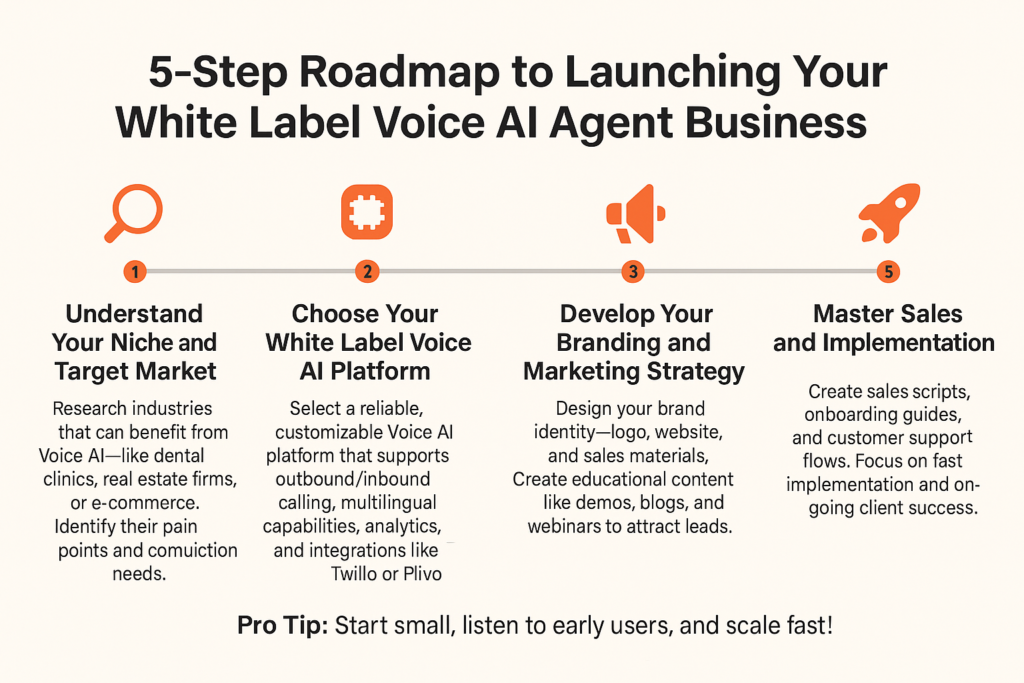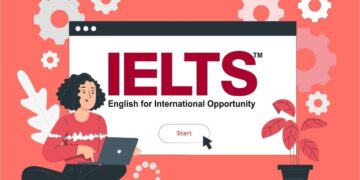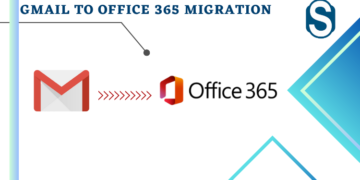In today’s rapidly evolving digital landscape, businesses are constantly seeking innovative ways to enhance customer engagement, streamline operations, and gain a competitive edge. Artificial intelligence (AI) has emerged as a transformative force, and within this realm, voice AI agents are leading the charge.
If you’re an entrepreneur, a marketing agency, or a forward-thinking business, the burgeoning market for voice AI presents a lucrative opportunity. But what if you could offer these cutting-edge solutions under your own brand, without the extensive development costs and complexities? Enter the world of white label voice AI agents.
What is a White Label Voice AI Agent?
A white label voice AI agent refers to a pre-built, fully functional voice AI solution that can be rebranded and resold by another company. Instead of investing significant time and resources into developing your own voice AI technology from scratch, you license an existing, proven platform, customize it with your branding, and then offer it as your own product or service. This model allows you to leverage expert-developed technology while maintaining full control over your brand identity and customer relationships.
This differs significantly from simply referring clients to a third-party voice AI provider. With a white label solution, your clients perceive the voice AI agent as your offering, fostering greater trust and reinforcing your brand’s expertise in the AI space.
Why Launch a Business Around White Label Voice AI Agents in 2025?
The demand for intelligent automation is skyrocketing, and voice AI is at the forefront of this revolution. Here are compelling reasons to consider building your business around white label voice AI agents:
Explosive Market Growth: The voice AI market is experiencing exponential growth, driven by increasing consumer comfort with voice technology and businesses’ need for efficient customer service and operational automation. By entering this market with white label solutions, you tap into a high-demand sector with immense potential.
Cost-Effectiveness and Speed to Market: Developing sophisticated voice AI from the ground up requires substantial investment in R&D, expert talent, and infrastructure. White labeling eliminates these hurdles, allowing you to launch your own voice AI offering quickly and with significantly lower upfront costs. You inherit a robust, tested product, enabling you to focus on sales and marketing rather than development.
Diversify Your Service Offerings: For existing marketing agencies, IT consultants, or business service providers, offering white label voice AI agents allows you to expand your portfolio and provide more comprehensive solutions to your clients. This not only increases your revenue streams but also positions you as a one-stop shop for advanced digital transformation.
Generate Recurring Revenue: Voice AI services often operate on a subscription or usage-based model, providing a stable and predictable source of recurring revenue. This creates a sustainable business model, allowing for long-term growth and stability.
Enhance Client Operations and Customer Experience: Voice AI agents can handle a multitude of tasks, from answering FAQs and scheduling appointments to processing orders and providing personalized support. By implementing these solutions, your clients can significantly improve their customer service, reduce operational costs, and free up human agents for more complex interactions.
Building Your White Label Voice AI Agent Business: A Step-by-Step Guide
Here’s a roadmap to establishing your white label voice AI agent business:
- Understand Your Niche and Target Market: While voice AI has broad applications, identifying a specific niche can help you focus your efforts. Will you serve healthcare providers with appointment booking agents? E-commerce businesses with 24/7 customer support? Or real estate agencies with lead qualification bots? A clear target audience will guide your marketing and sales strategies.
- Choose Your White Label Voice AI Platform: This is a critical step. Look for a platform that offers:
- Robust Features: Natural Language Understanding (NLU), speech-to-text, text-to-speech, sentiment analysis, integration capabilities with CRMs and other business tools.
- Customization Options: The ability to easily rebrand the interface, customize voice personalities, and tailor conversational flows to specific client needs.
- Scalability: A platform that can grow with your business and handle increasing user loads.
- Reliable Support and Documentation: Comprehensive resources and responsive technical support from the white label provider are essential for your success.
- Develop Your Branding and Marketing Strategy: While the technology is white-labeled, your brand identity is crucial. Create a compelling brand story, develop a strong visual identity, and craft marketing messages that highlight the unique benefits of your voice AI solutions.
- Define Your Pricing Model: Consider various pricing structures, such as per-agent licensing, per-call charges, or tiered subscription plans based on features and usage. Research competitor pricing (if applicable) and ensure your model is competitive and profitable.
- Master Sales and Implementation: Develop a sales process that effectively communicates the value proposition of voice AI to your target clients. Once a sale is made, ensure you have a clear implementation process, including onboarding clients, configuring their voice AI agents, and providing ongoing support.

Final Thoughts
The adoption of voice AI is not a trend; it’s a fundamental shift in how businesses interact with their customers. By offering white label voice AI agents, you can empower businesses to embrace this future, enhance their efficiency, and provide exceptional customer experiences, all while building a profitable and scalable venture under your own brand.
This is an opportune time to explore the vast potential of White Label SaaS software and specifically delve into the voice AI segment. The tools and platforms are available; the market is ripe. Will you be part of the next wave of innovation?


























